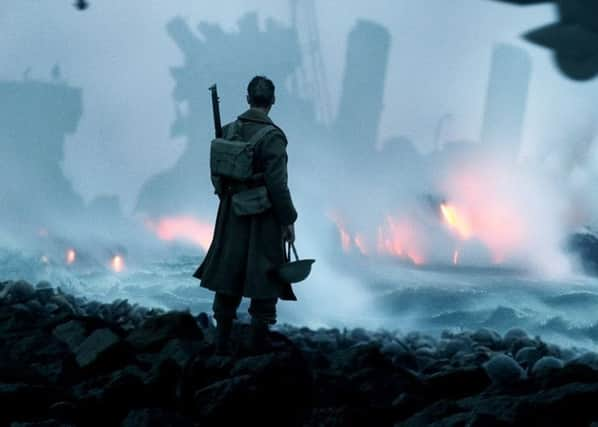Andrew Vine: Spirit reminds us we had to fight for our freedoms


The critics say it does its subject justice, paying handsome tribute to all involved in the desperate, heroic evacuation of the British Expeditionary Force in the spring of 1940, which enabled the country to fight on against Nazi Germany.
Of course, everybody knows the story that director Christopher Nolan has brought to life on screen – the hundreds of thousands of troops trapped on French beaches and the armada of “little ships” which helped to rescue them.
Advertisement
Hide AdAdvertisement
Hide AdOr do they? I mentioned to a couple of young relatives how much I was looking forward to seeing the film, and got the response: “Dunkirk? What’s that?”
I thought they were pulling my leg. These are two exceptionally bright teenagers who both enjoy history at school. But they weren’t joking.
The name of the small coastal town that lodged in the British psyche as a byword for defiance in the face of overwhelming odds was unknown to them.
It wasn’t just Dunkirk that baffled them. Over the past months, as terrorists struck Manchester and London, they’d heard people on the news talking about Britons showing “the Blitz spirit” in refusing to be cowed by fear. They didn’t know what the Blitz was.
Advertisement
Hide AdAdvertisement
Hide AdYou don’t need to be a history anorak like me to be a bit unsettled by this lack of awareness of the not-too-distant past which is still within living memory.
They have been taught certain essentials about the Second World War – the necessity of Hitler being defeated, Churchill’s embodiment of Britain’s resolve and the evil of the Holocaust – but apart from that, it’s all pretty sketchy.
The Battle of Britain vaguely rings a bell, as does something called D-Day, and that’s about it.
I suppose it was much easier for those of us who are the children of the wartime generation to absorb the story of what happened, because the war was a central point of reference in our parents’ lives.
Advertisement
Hide AdAdvertisement
Hide AdIt peppered conversations between families and workmates, and attitudes and values formed during the war coloured the way lives were led afterwards. Decency, discipline and fortitude were at their heart. Those qualities remain central to British life, and younger people need to know why.
As the wartime generation gradually bows out, that direct passing-on is dwindling, which is sad, not only because of the human loss it represents but because it’s opening up gaps in the knowledge of the young.
It enriches their lives to know how Britain became the country it is today, and why we embrace core values from generation to generation, and that means knowing about the events that shaped us, whether it’s the Norman invasion of 1066 or the threat of being invaded in 1940.
It’s about understanding that the way we live and the freedom we enjoy, to vote as we please and say what we think, didn’t happen by accident or aren’t ours by some sort of divine right, but had to be fought for not so very long ago.
Advertisement
Hide AdAdvertisement
Hide AdThat means appreciating what the ever-thinning ranks of old men in blazers with regimental badges and rows of medals who stand to attention at war memorials every Remembrance Sunday did. Learning about that, or other pivotal moments in our country’s long story, isn’t a chore. When exposed to history in the right way, the young are immediately fascinated and engaged.
A few weeks ago, in Belgium to explore the First World War battlefields of Flanders, I had coffee with a school party following the same route.
They were great kids. All wore sweatshirts with the names of the places they were visiting emblazoned on the back, just like souvenir T-shirts sold at arena concerts listing the dates of a megastar’s world tour.
There, amongst the memorials and ground pitted by shell craters, history had come alive and they related to the soldiers – many not much older than themselves – who fought and fell. Suddenly, they understood the scale and the human cost of this cataclysmic war.
Advertisement
Hide AdAdvertisement
Hide AdWhen they returned home, most intended to dive into reading more about what they had seen. It can be fashionable these days to scoff at all the stuff about stiff upper lips, making the best of things and resolve in the face of an implacable enemy. Keeping calm and carrying on has become, after all, an ironic slogan on a million workplace mugs.
Yet in the face of terrorism, whole generations which have only a tenuous grasp of large swathes of history still behave instinctively like the one which prayed for the salvation of the men stuck on the beaches of Dunkirk.
And if a film set to be the summer’s biggest blockbuster helps them understand why we behave like we do, it’s doing us all a favour.